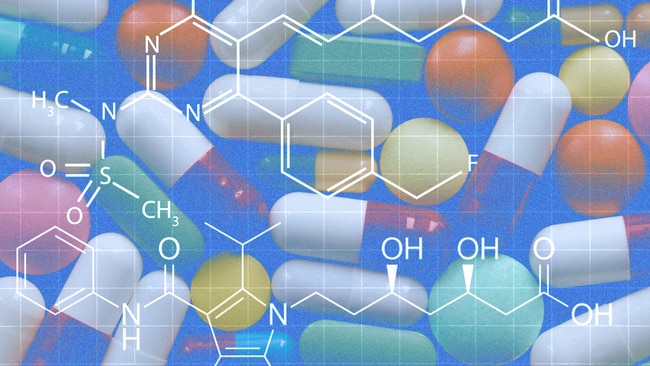Boom in scripts to fight depression
The explosion in popularity of the drugs comes despite warnings from psychiatrists that antidepressants should not be prescribed for mild depression.

The explosion in popularity of the drugs comes despite warnings from psychiatrists that antidepressants should not be prescribed for mild depression.
Yearly prescriptions of the most popular antidepressant drugs have increased by more than one million during the past five years, with almost 12 million scripts of the drugs Lexapro and Zoloft filled by pharmacists in the past year at a cost to the taxpayer of almost $50m.
Lexapro, whose generic name is escitalopram, is the sixth most commonly prescribed drug in the country, with 5.8 million ,814,350 scripts supplied in 2021-22, while Zoloft (sertraline) comes in at No. 8 with 5.43 million prescriptions.
Around half of those prescriptions were taxpayer subsidised under the Pharmaceutical Benefits Scheme, while 6.5 million of the scripts were supplied under co-payment prescriptions, with patients chipping in almost $13m, according to the latest PBS Expenditure and Prescription Report for 2021-22.
Five years ago, the same report showed Zoloft was the 23rd most commonly prescribed PBS subsidised drug in Australia with 1.8m annual prescriptions, and Lexapro came in at No. 28 with 1.75m annual prescriptions on the PBS.
Royal Australian and New Zealand College of Psychiatrists guidelines indicate that the first steps in treating mild depression should be lifestyle modification focused on exercise and diet, as well as accessing digital psychological resources.
“We really want to emphasise that it’s these other things that need to be done first,” said Mike Millard, clinical director of the clinical research unit for anxiety and depression at St Vincent’s Hospital in Sydney and the University of NSW.
The other drug that has exploded in popularity this year is the diabetes drug Ozempic (semaglutide), for which 858,460 PBS subsidised scripts were issued this year compared with 186,260 the year before.
Ozempic is only subsidised on the PBS for people with diabetes, but many thousands more patients accessed the drug off-label this year for weight loss, placing enormous pressure on supply and prompting the regulator to restrict it to diabetics only.
The drug’s popularity saw its manufacturer, the Dutch pharma Novo Nordisk, feature for the first time in the top 20 most profitable drug companies in Australia by PBS prescription.
Overall, the two most commonly prescribed drugs in Australia in 2021-22 were the statins rosuvastat (Crestor), with more than 15 million prescriptions, and atorvastatin (Lipitor), with 12 million prescriptions.
Supply of these two drugs, which lower cholesterol, cost the taxpayer $175m last year. The diabetes drug Metformin, which lowers blood sugar, remains highly prescribed, coming in at No. 7.
Most of the top 10 most expensive drugs to supply under PBS-subsidised prescriptions are newer drugs known as monoclonal antibodies, which treat cancers and some auto-immune conditions.
Keytruda, which was only recently listed on the PBS, was prescribed 50,296 times on the PBS to treat melanoma at a cost of about $8500 per prescription.
The most expensive drug under the PBS per prescription was aflibercept, sold as Eylea or Zaltrap, which is used to treat macular degeneration.
Almost half a million scripts were supplied on the PBS at a cost per script of $1206.
Other drugs in the top 10 most expensive were those used to treat Crohn’s disease, rheumatoid arthritis, anticoagulants to prevent blood clots, osteoporosis drugs, drugs for multiple sclerosis and monoclonal antibody drugs to treat other degenerative eye diseases.



